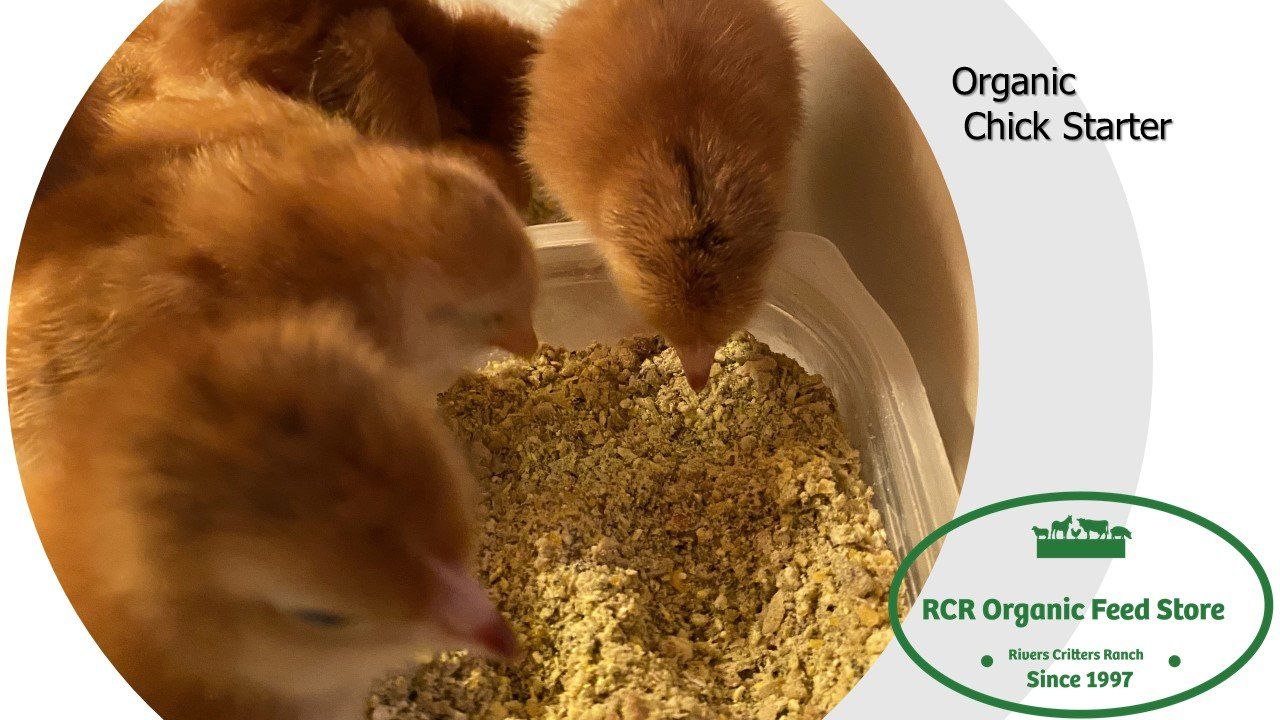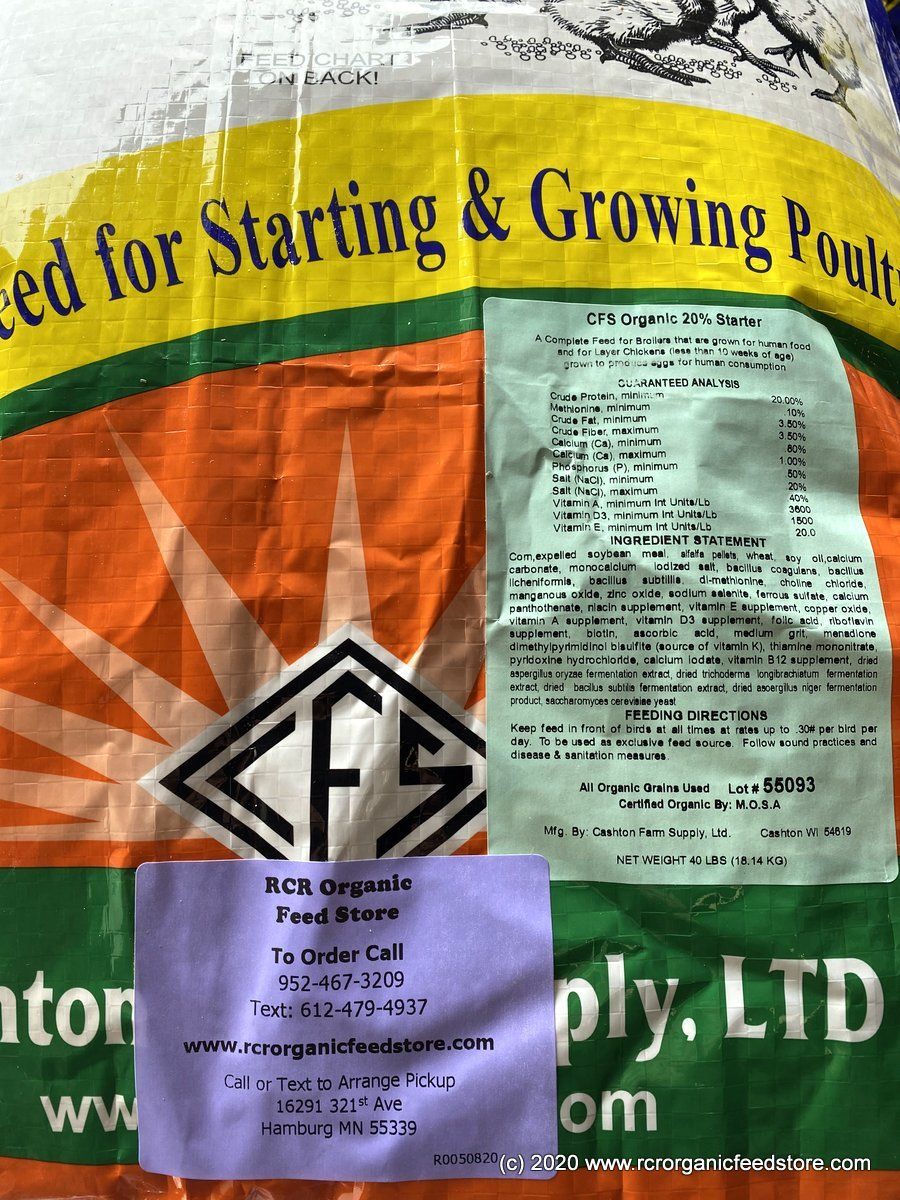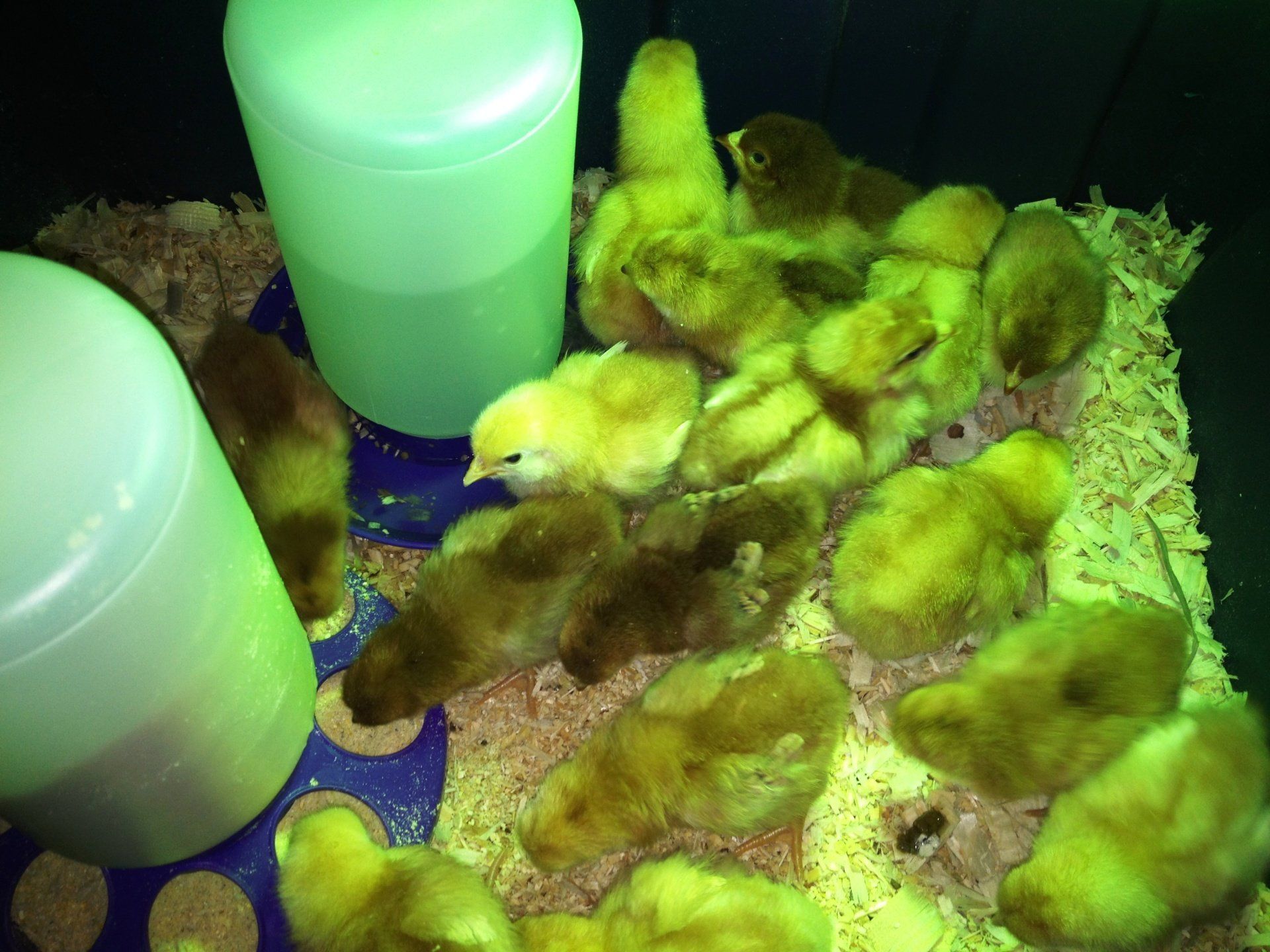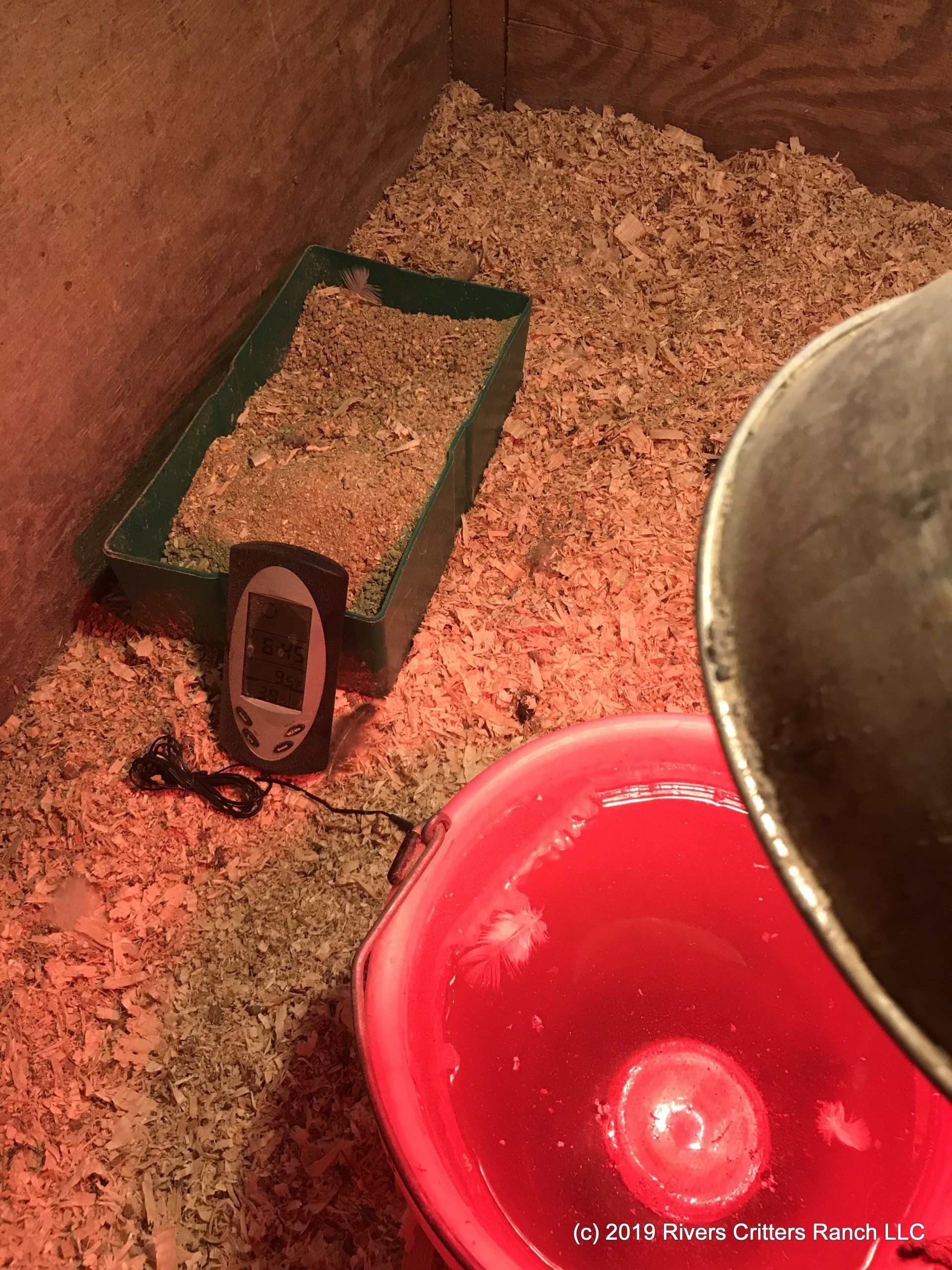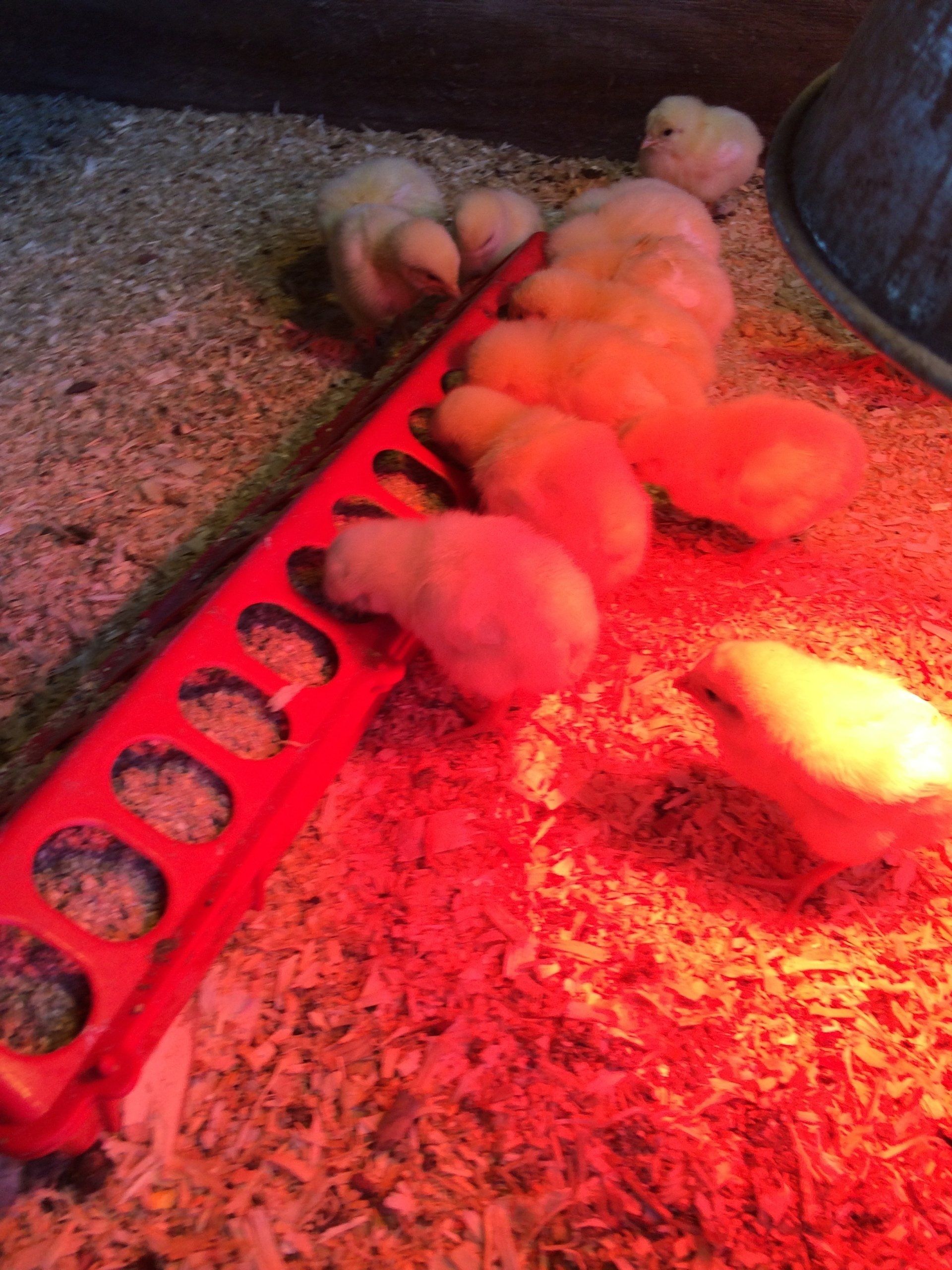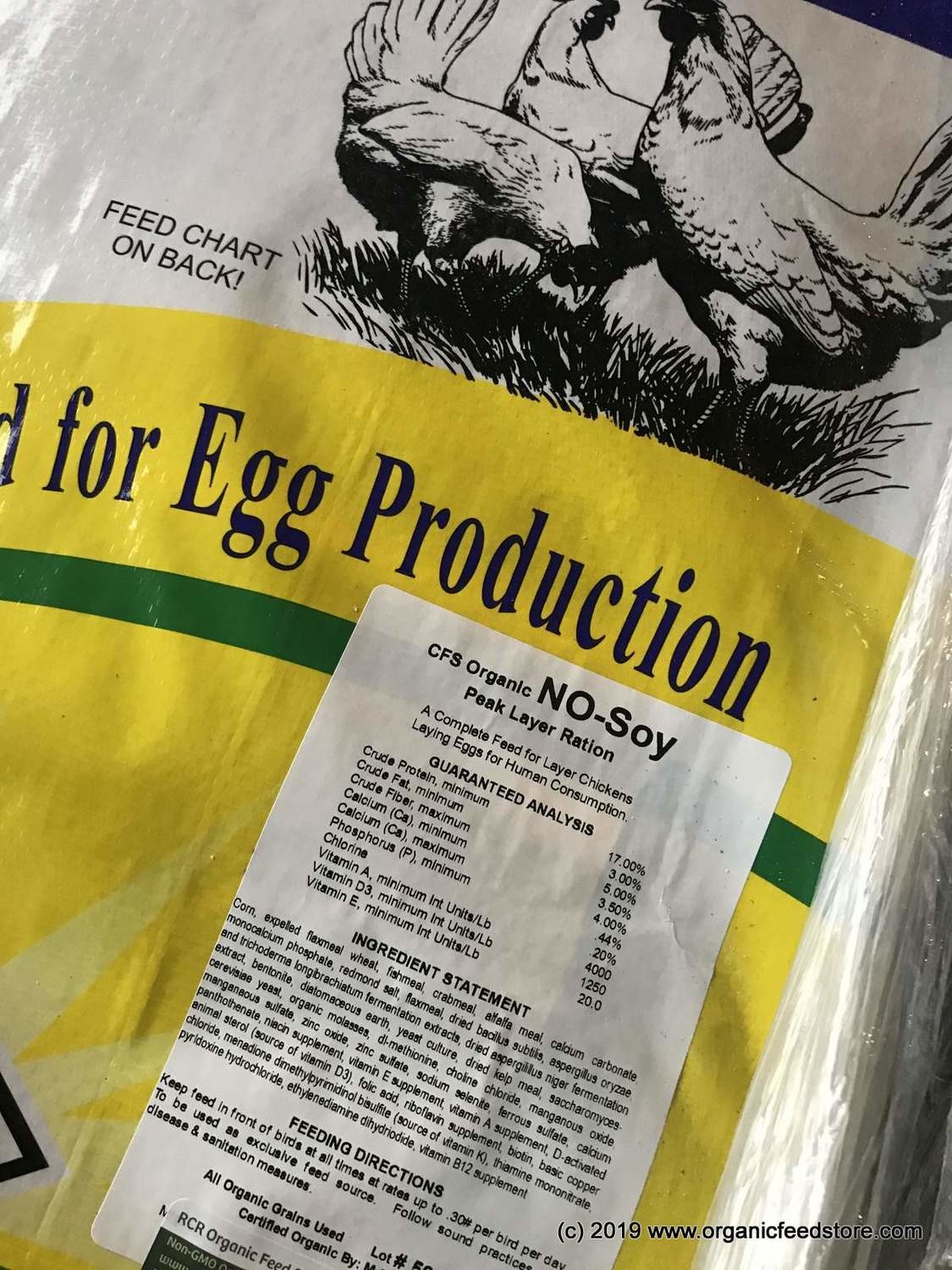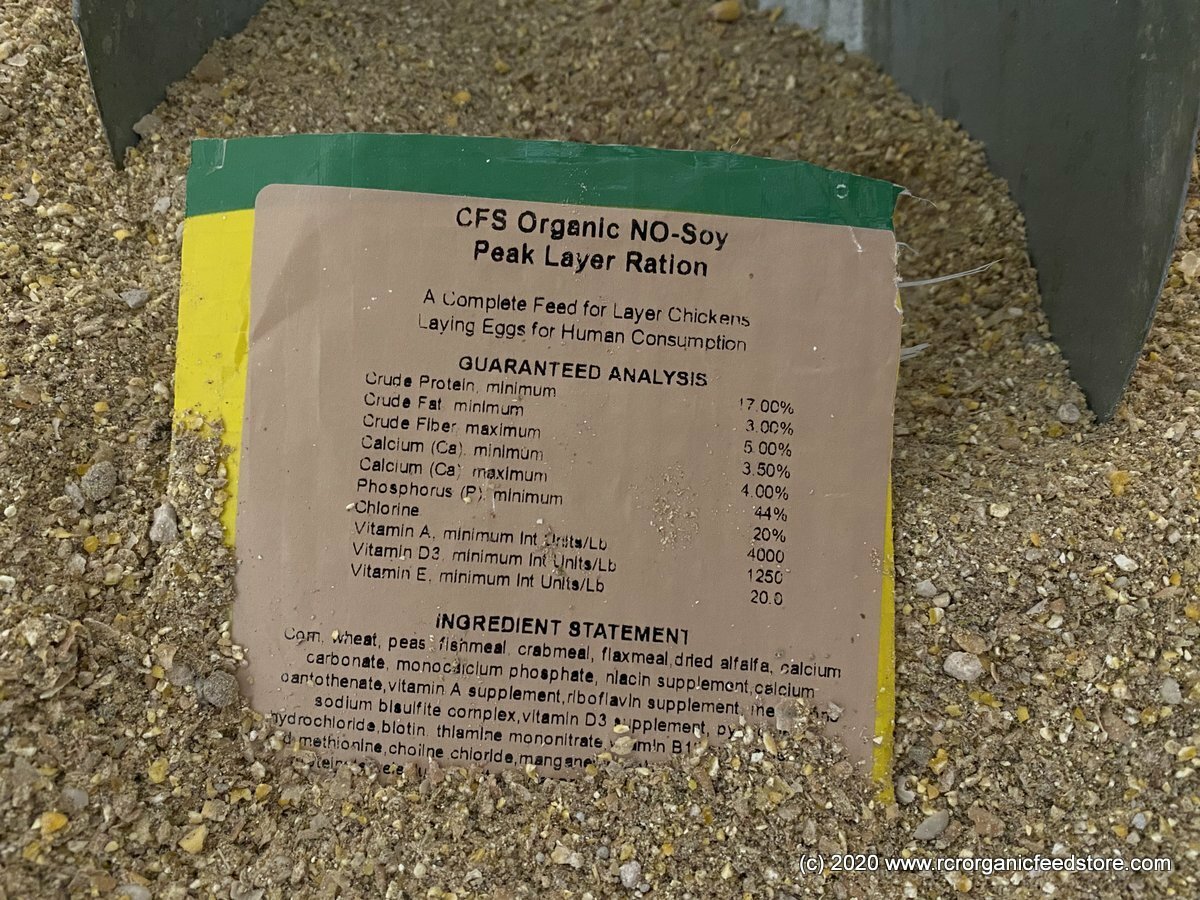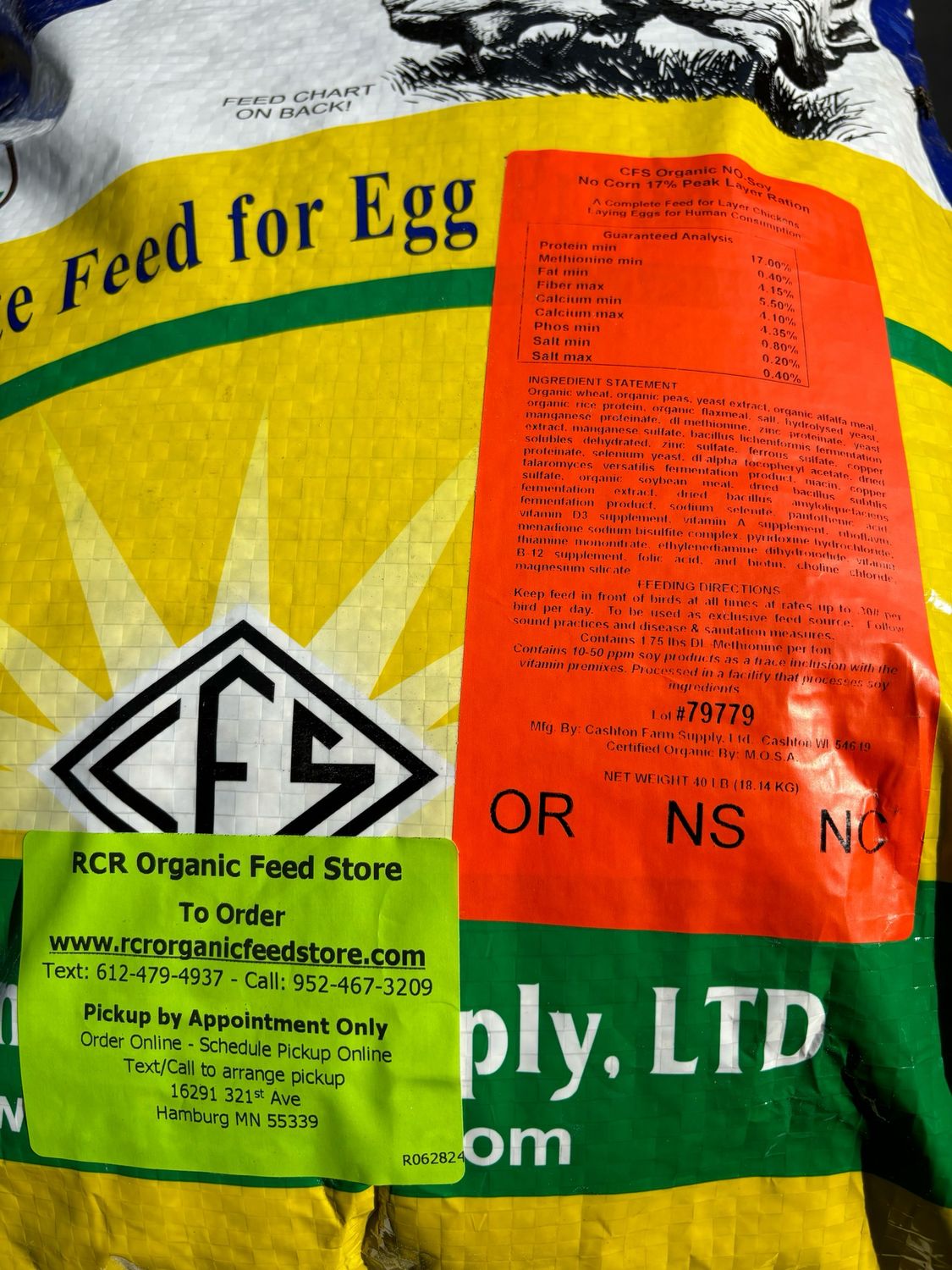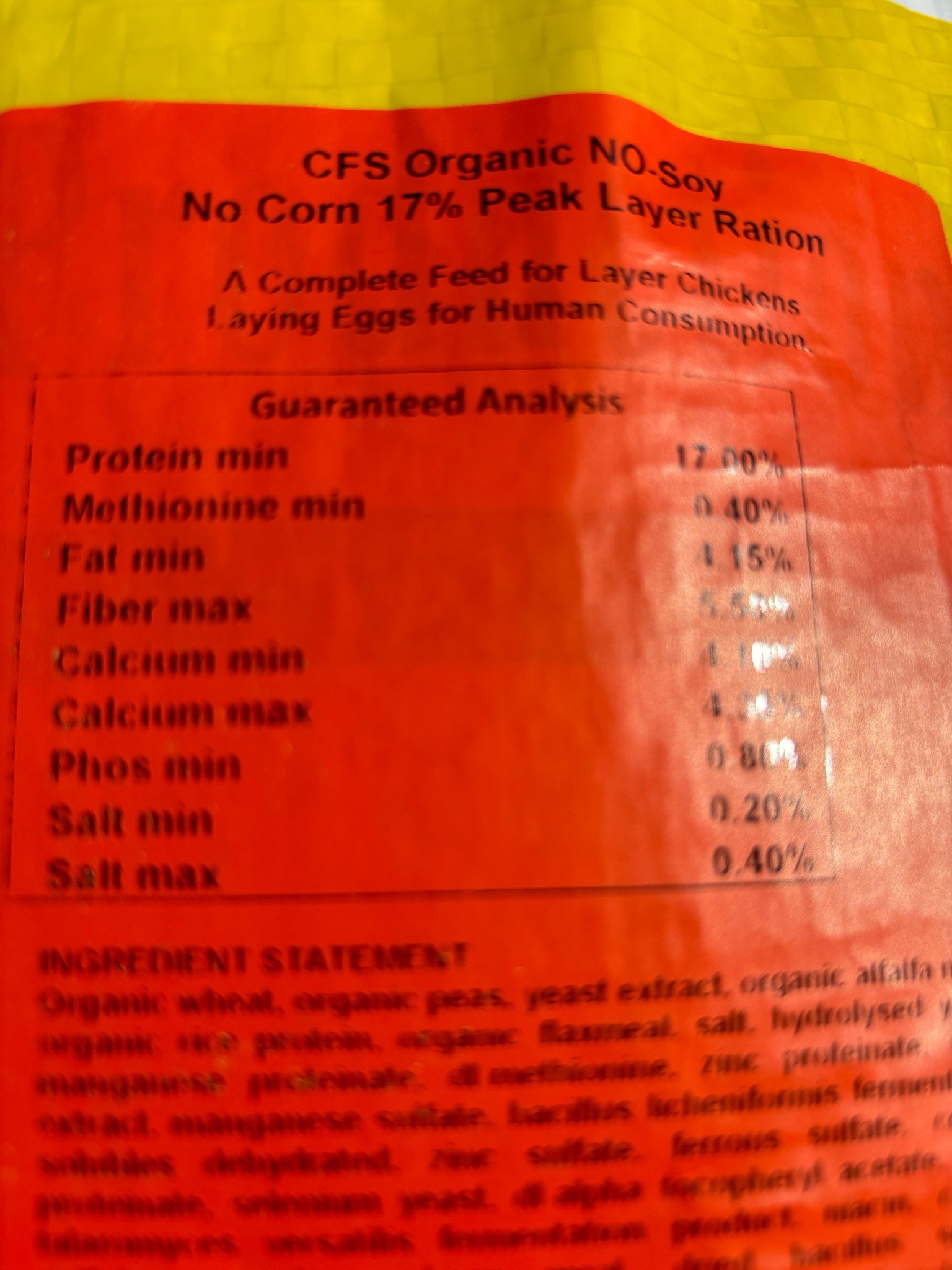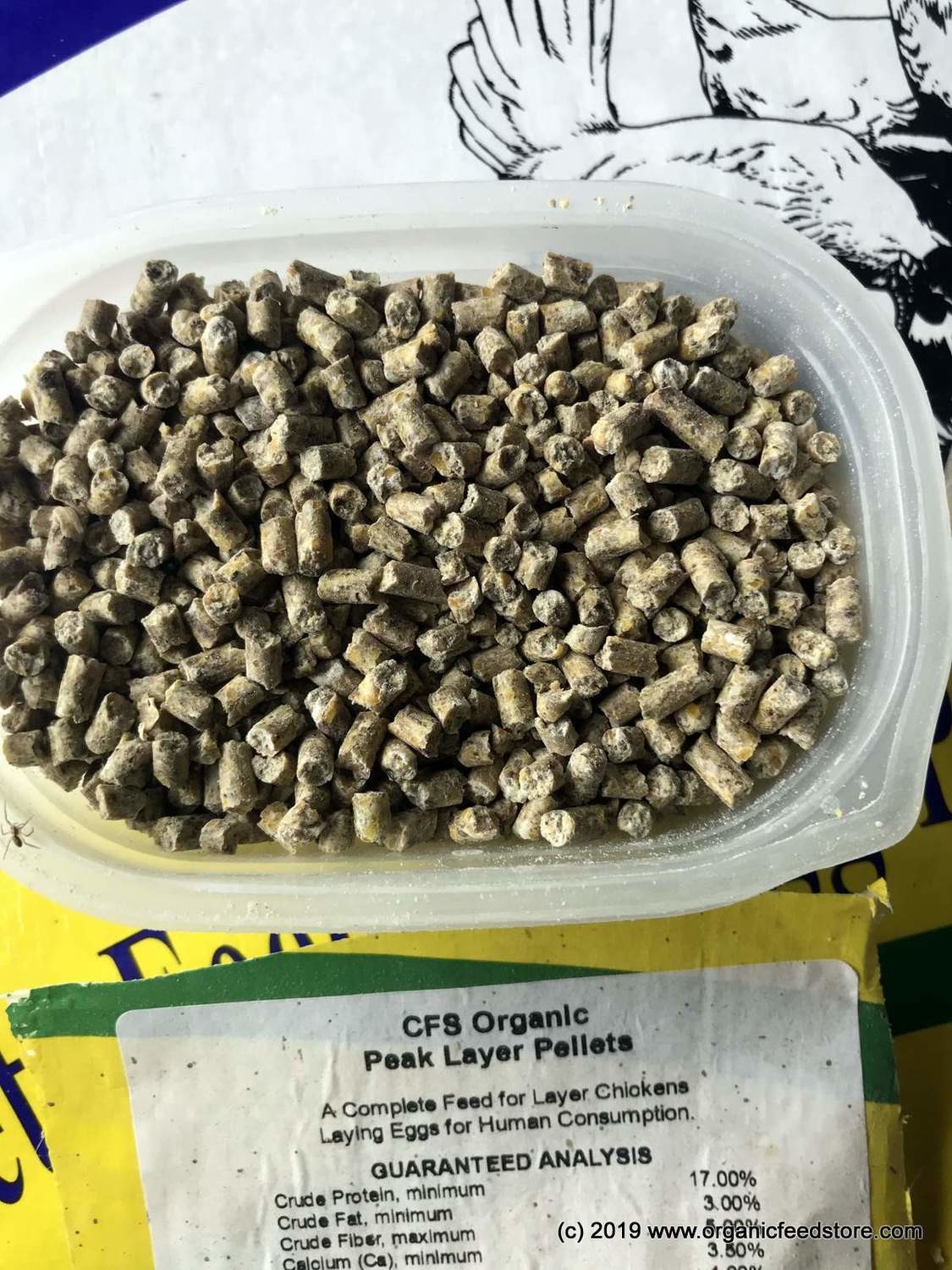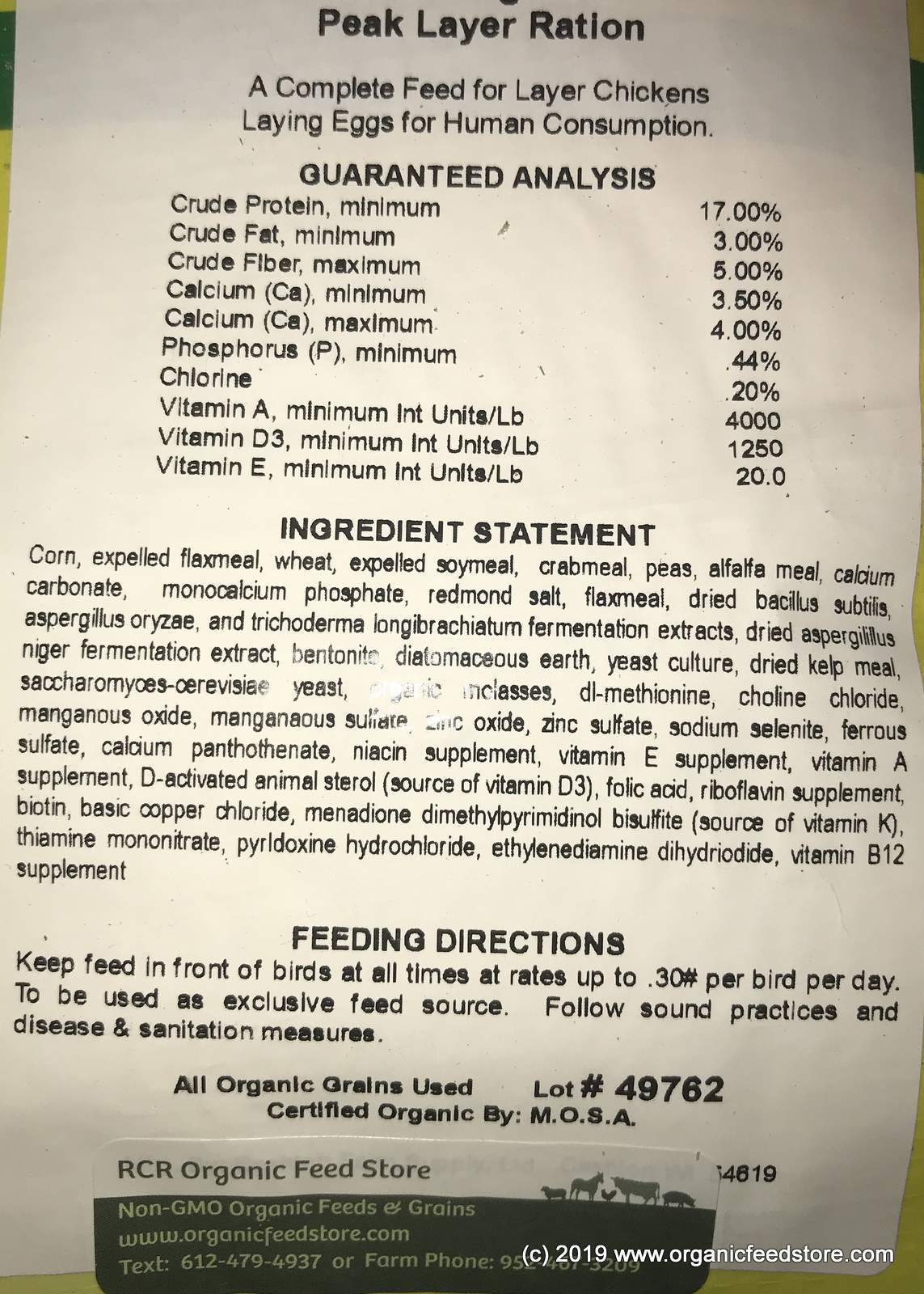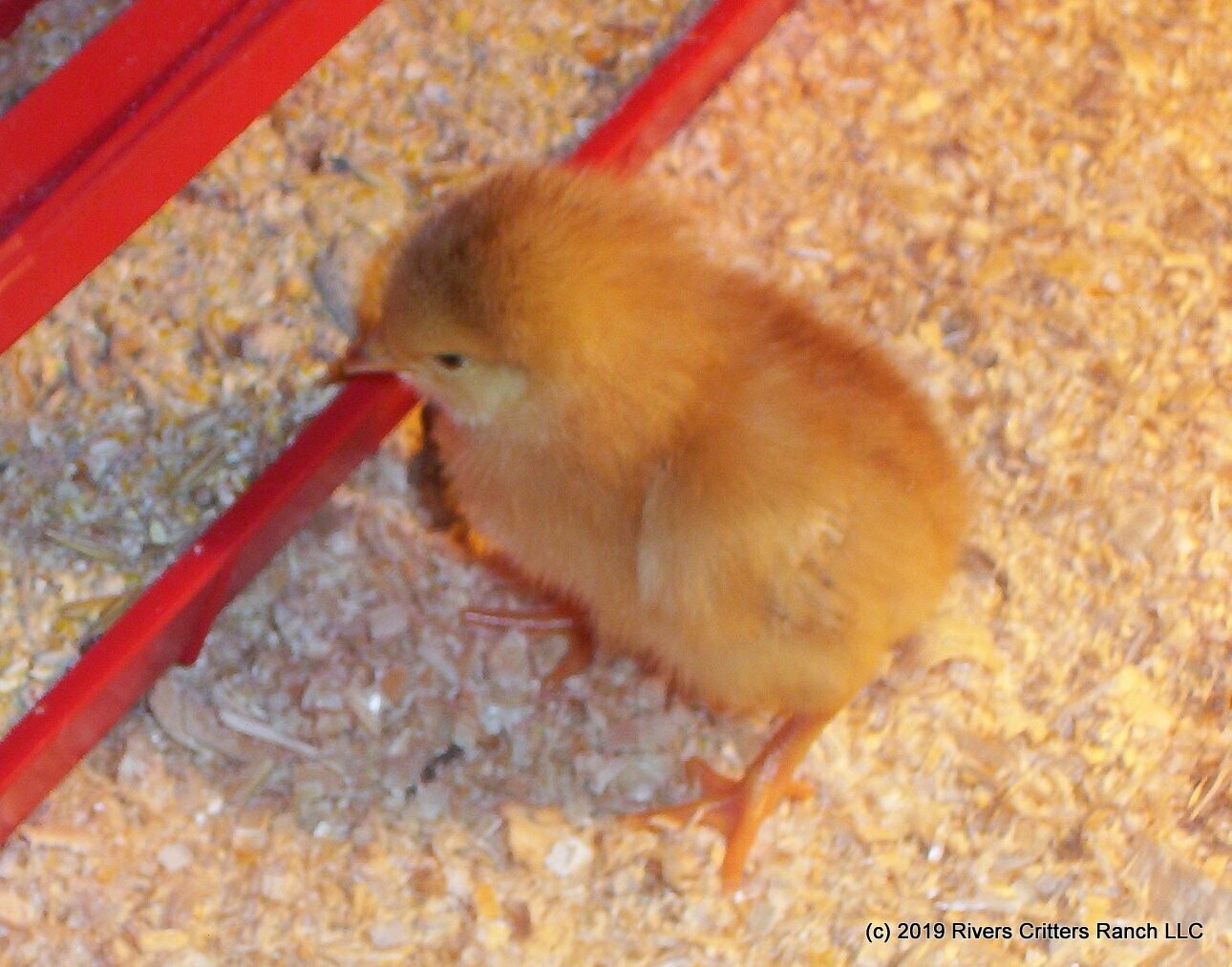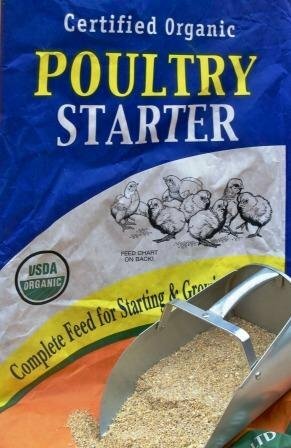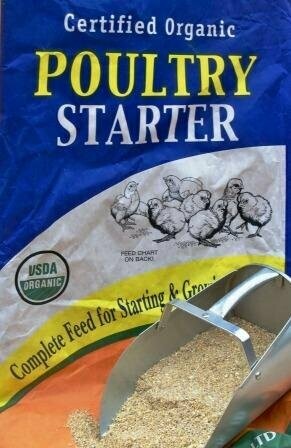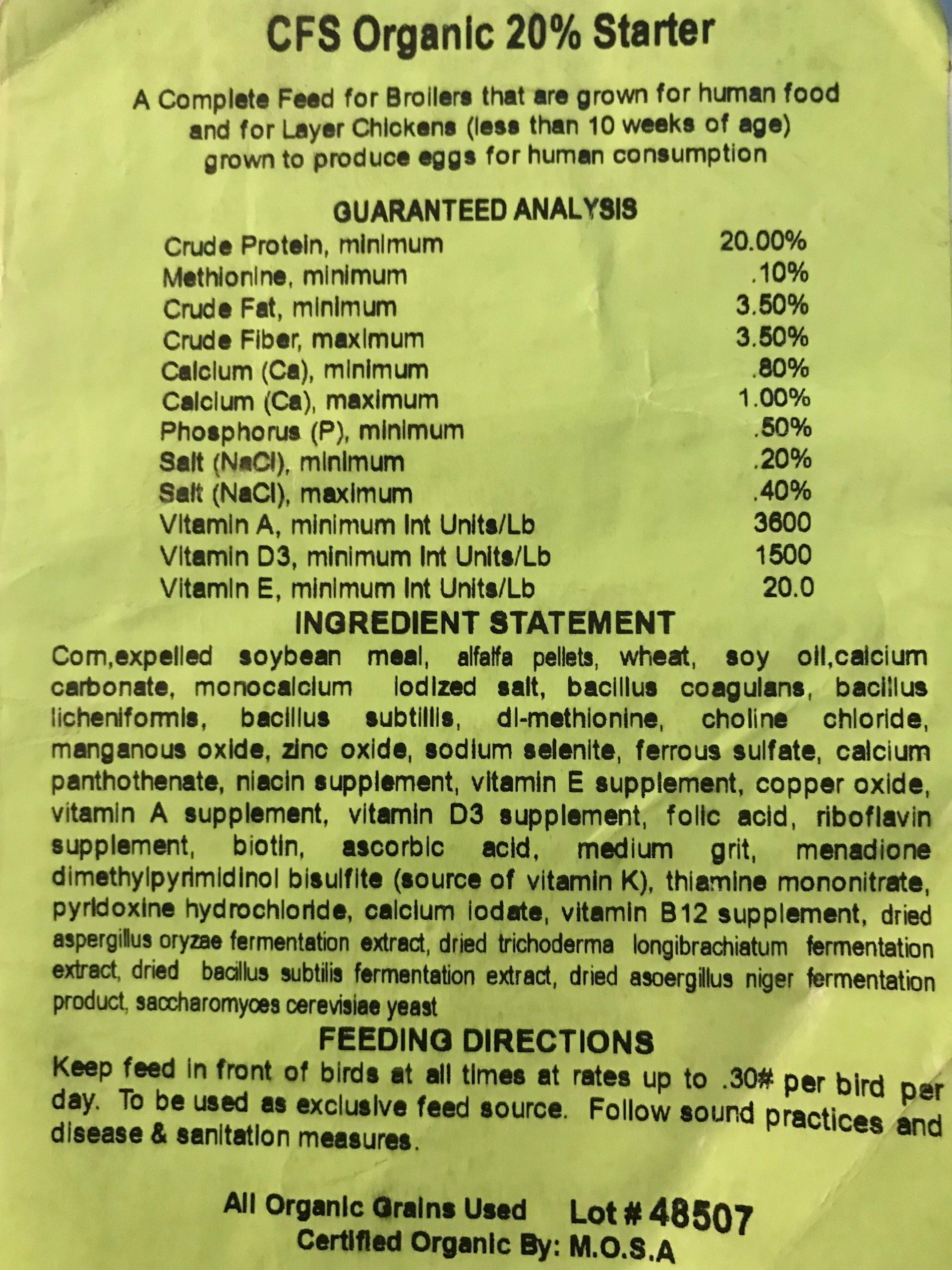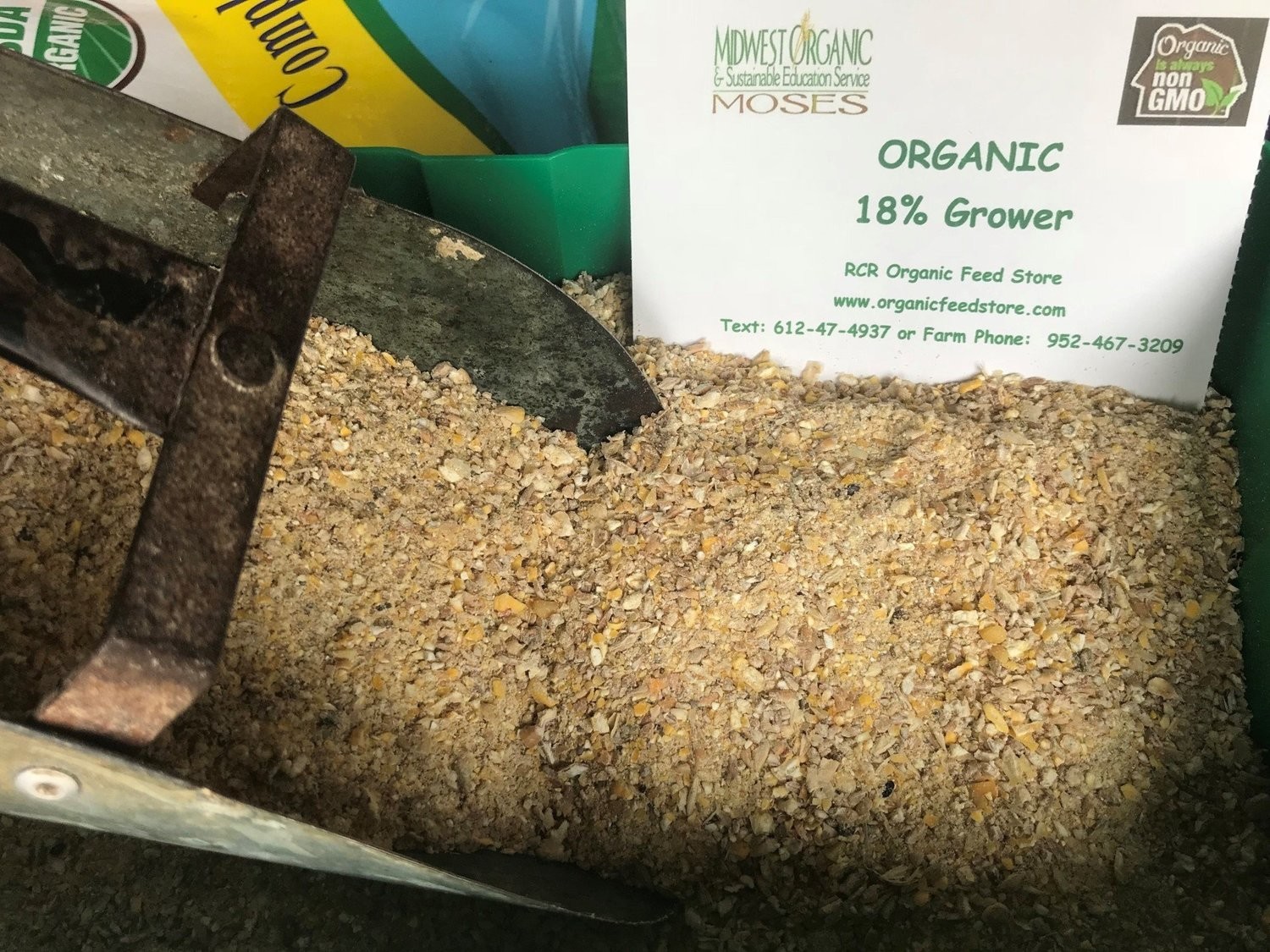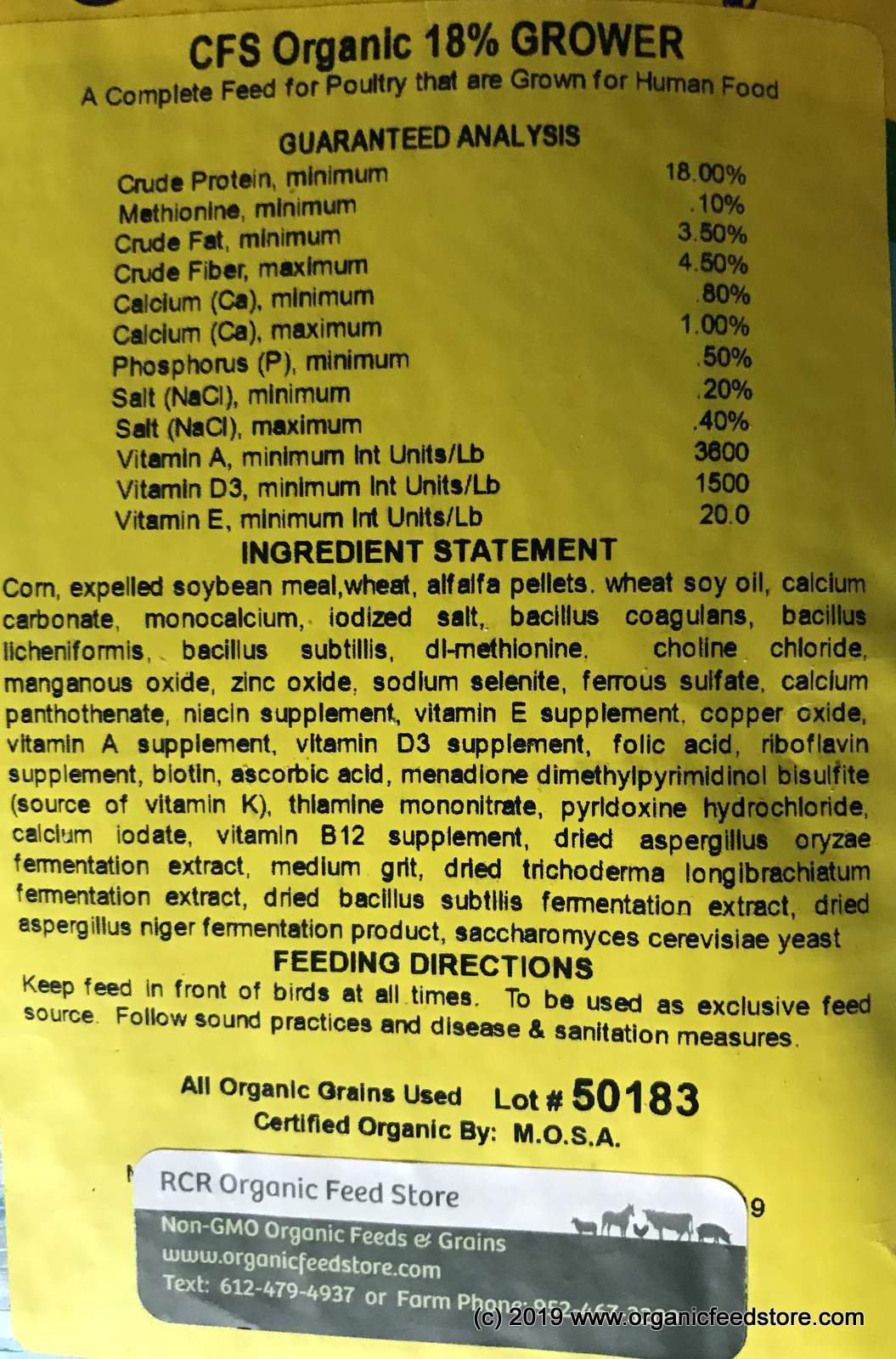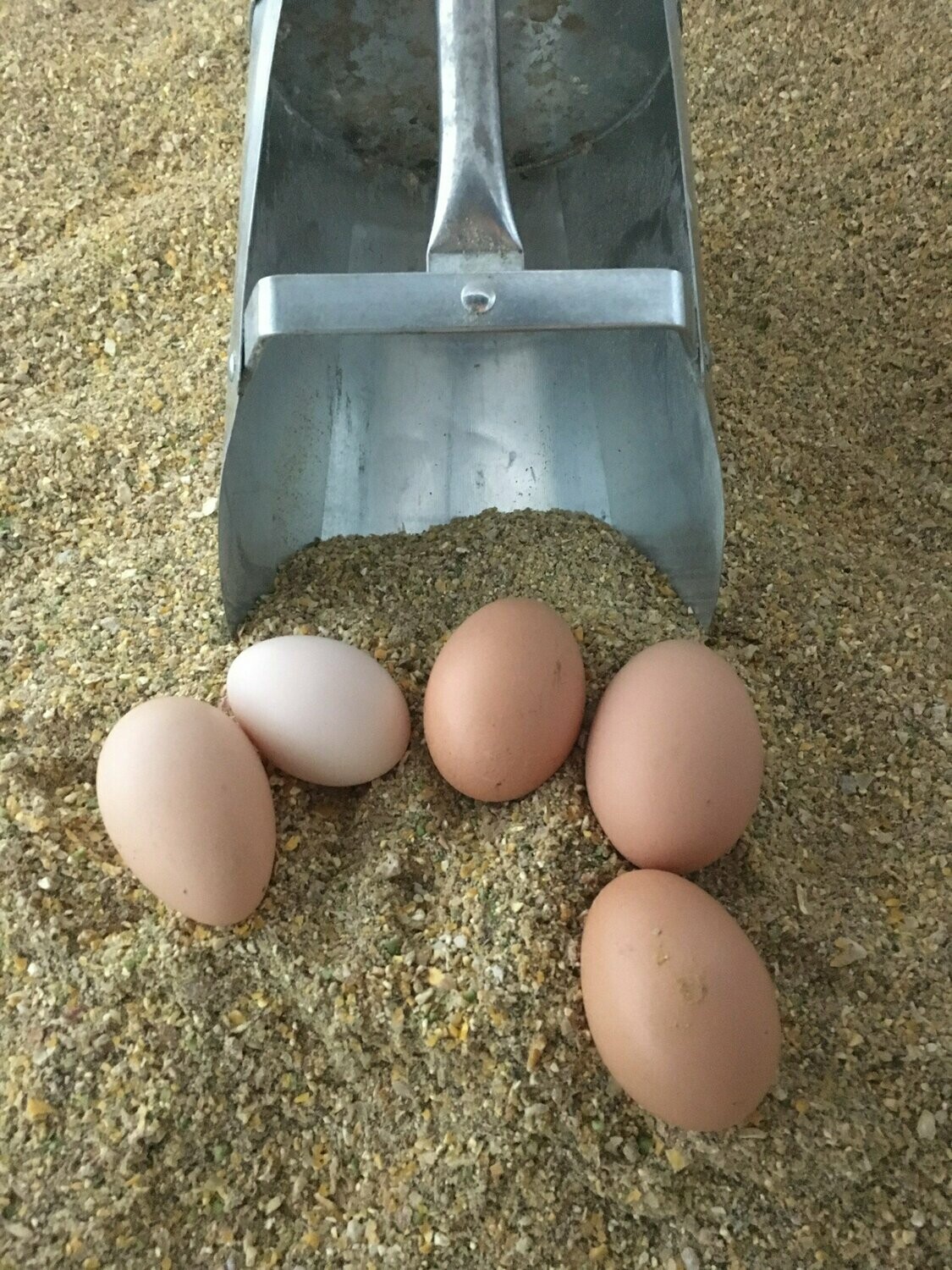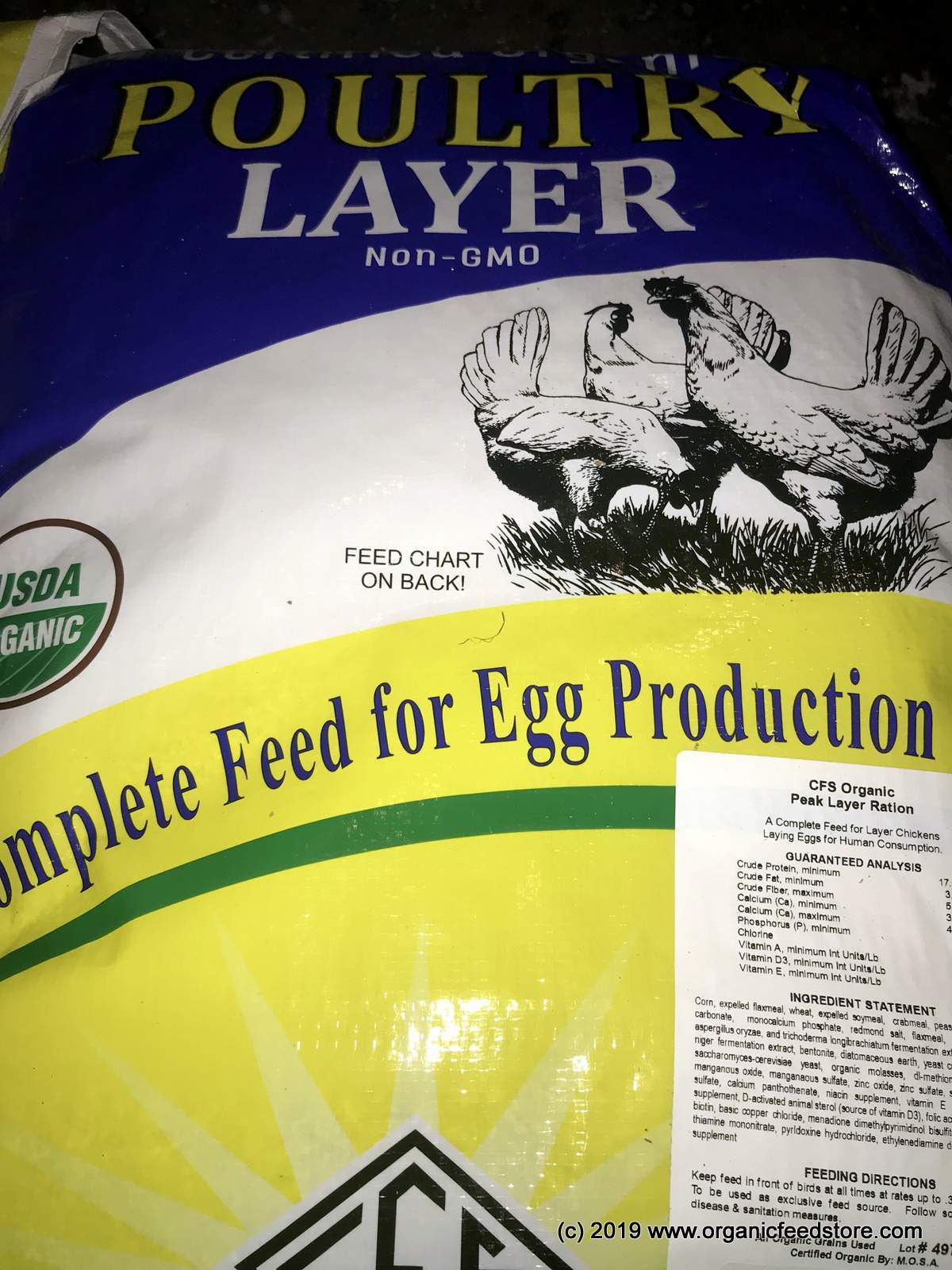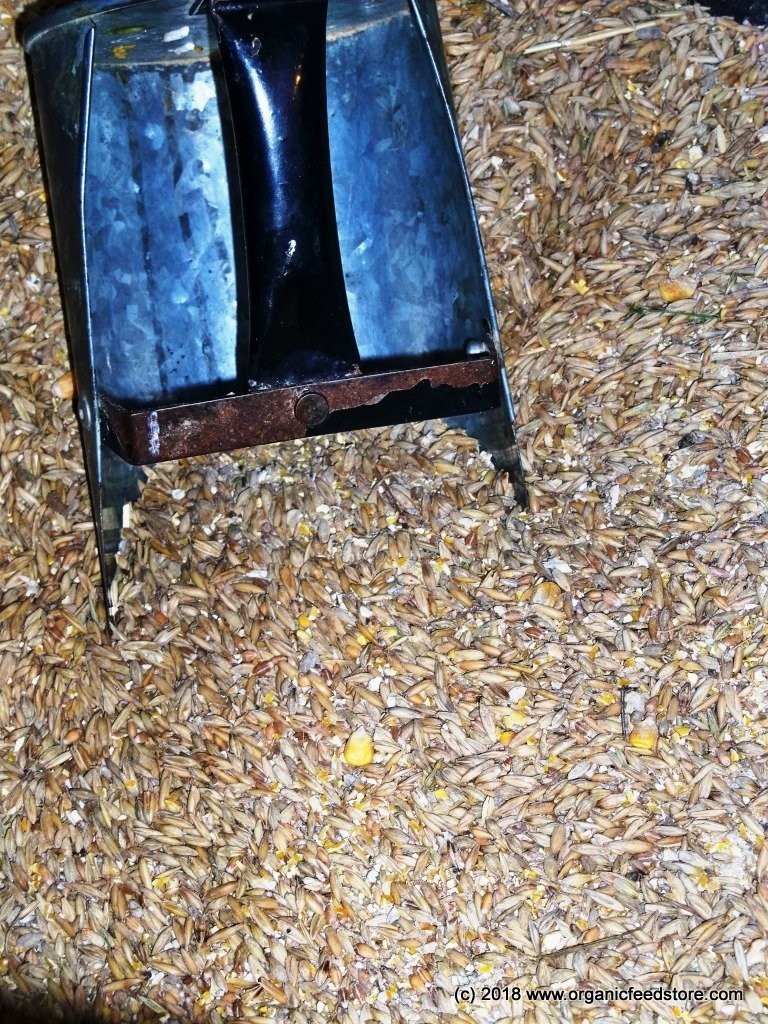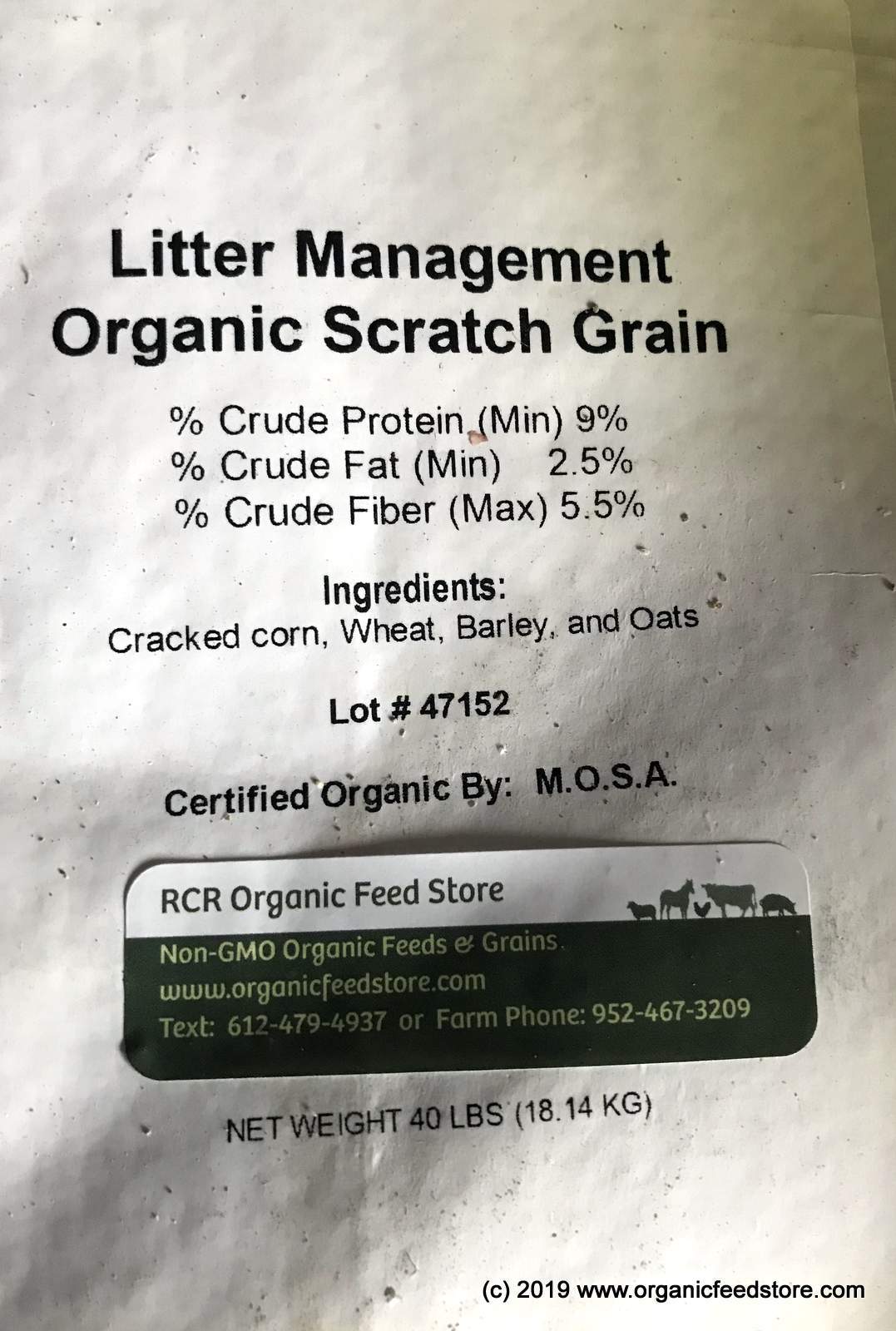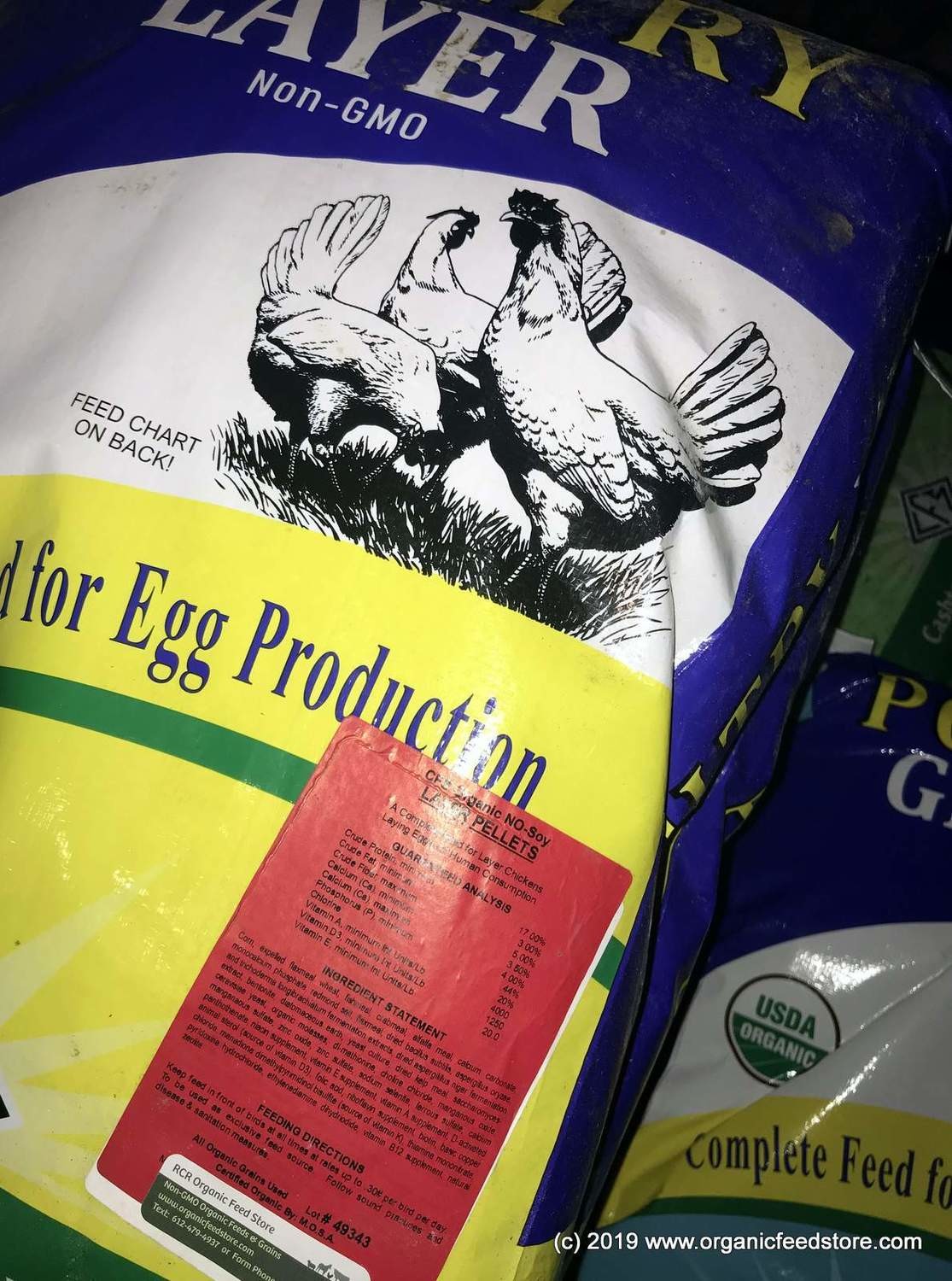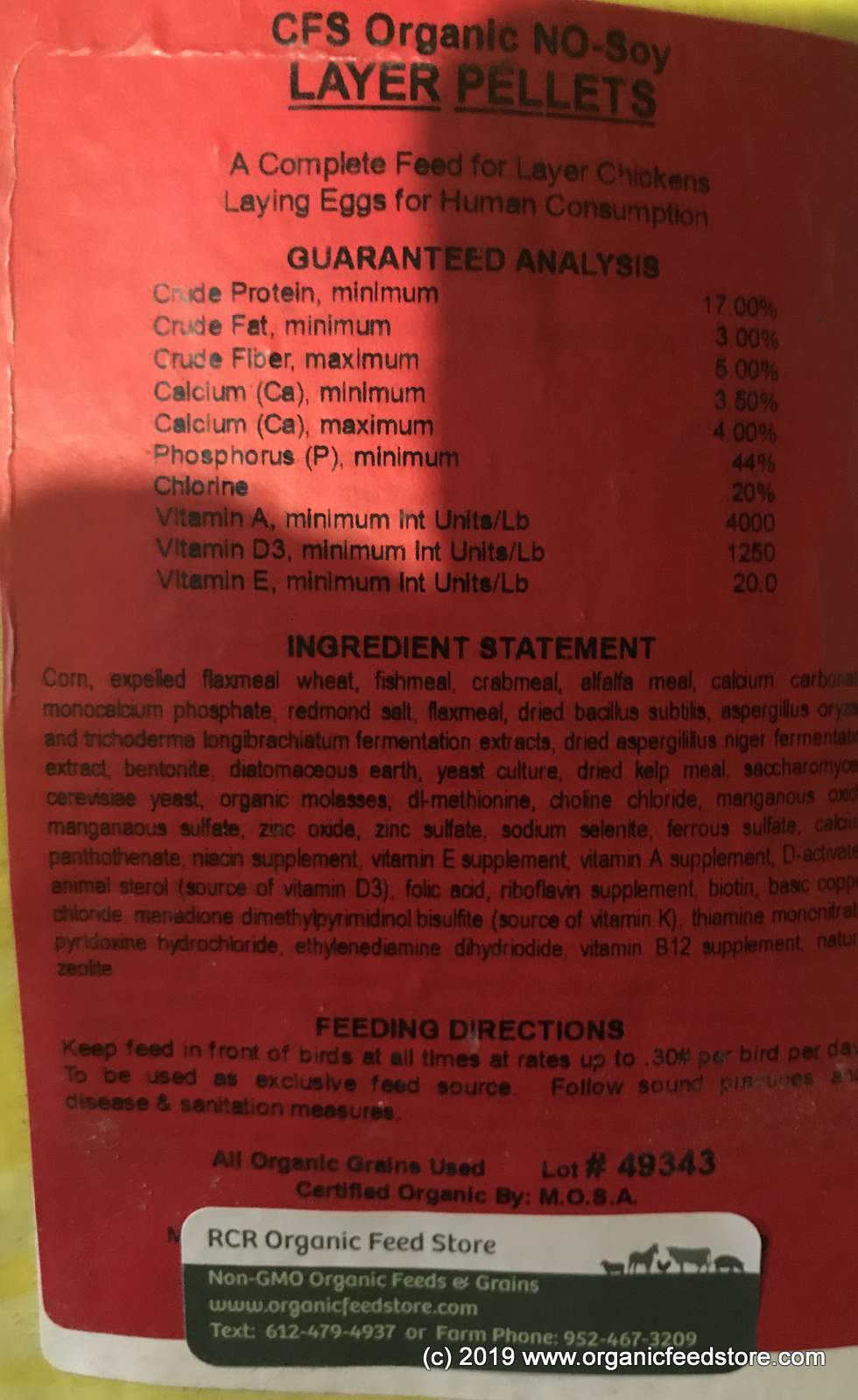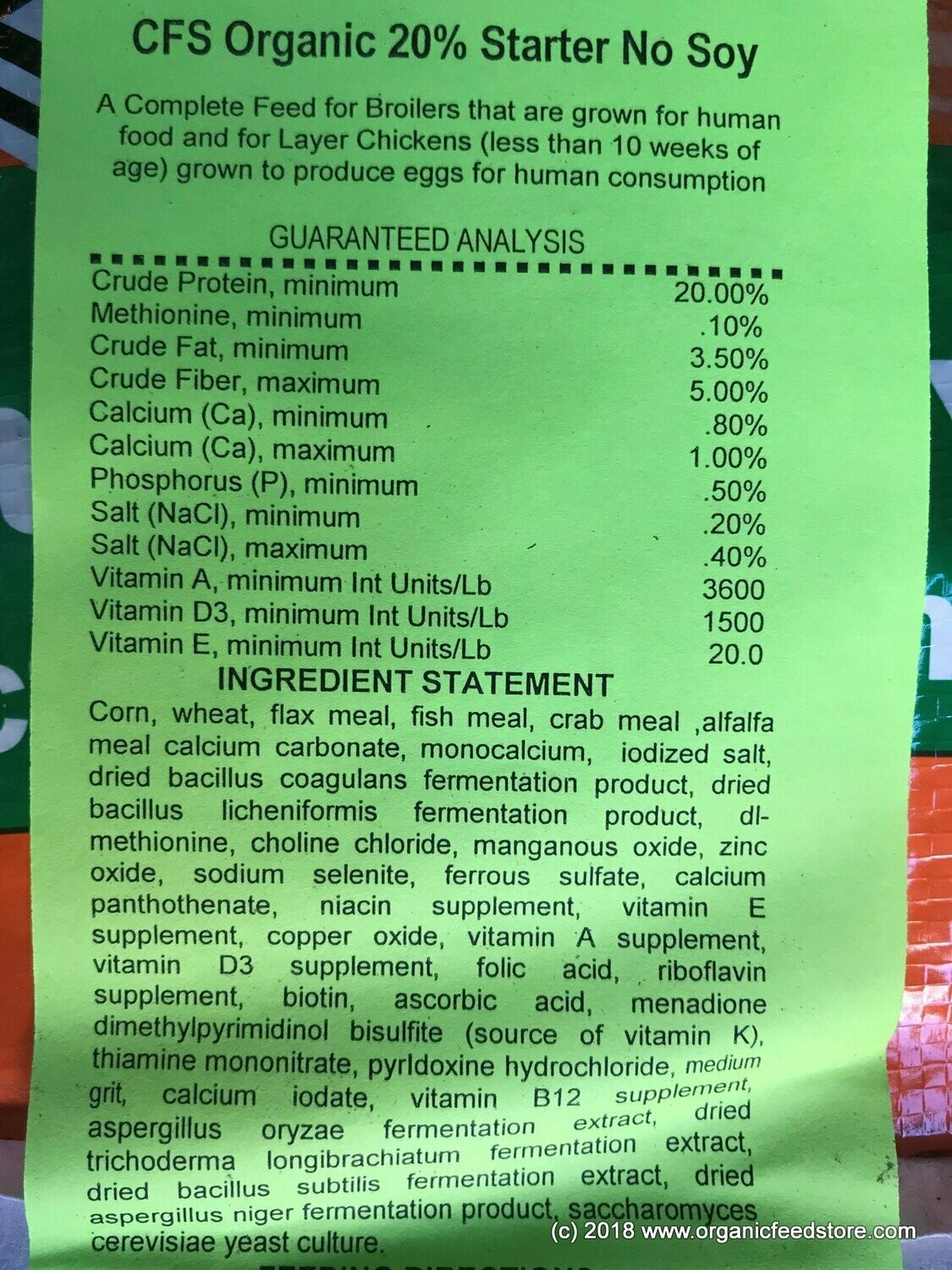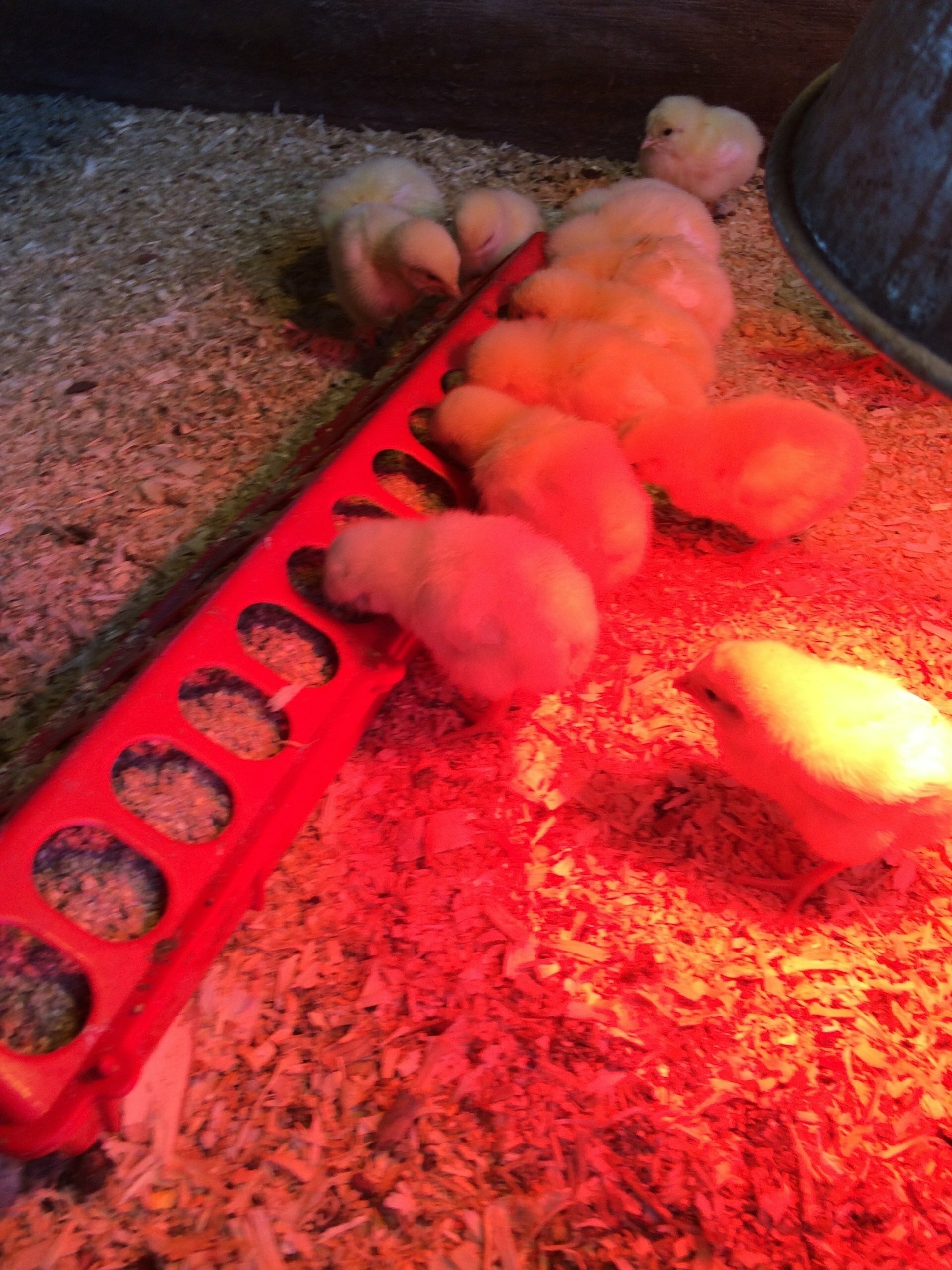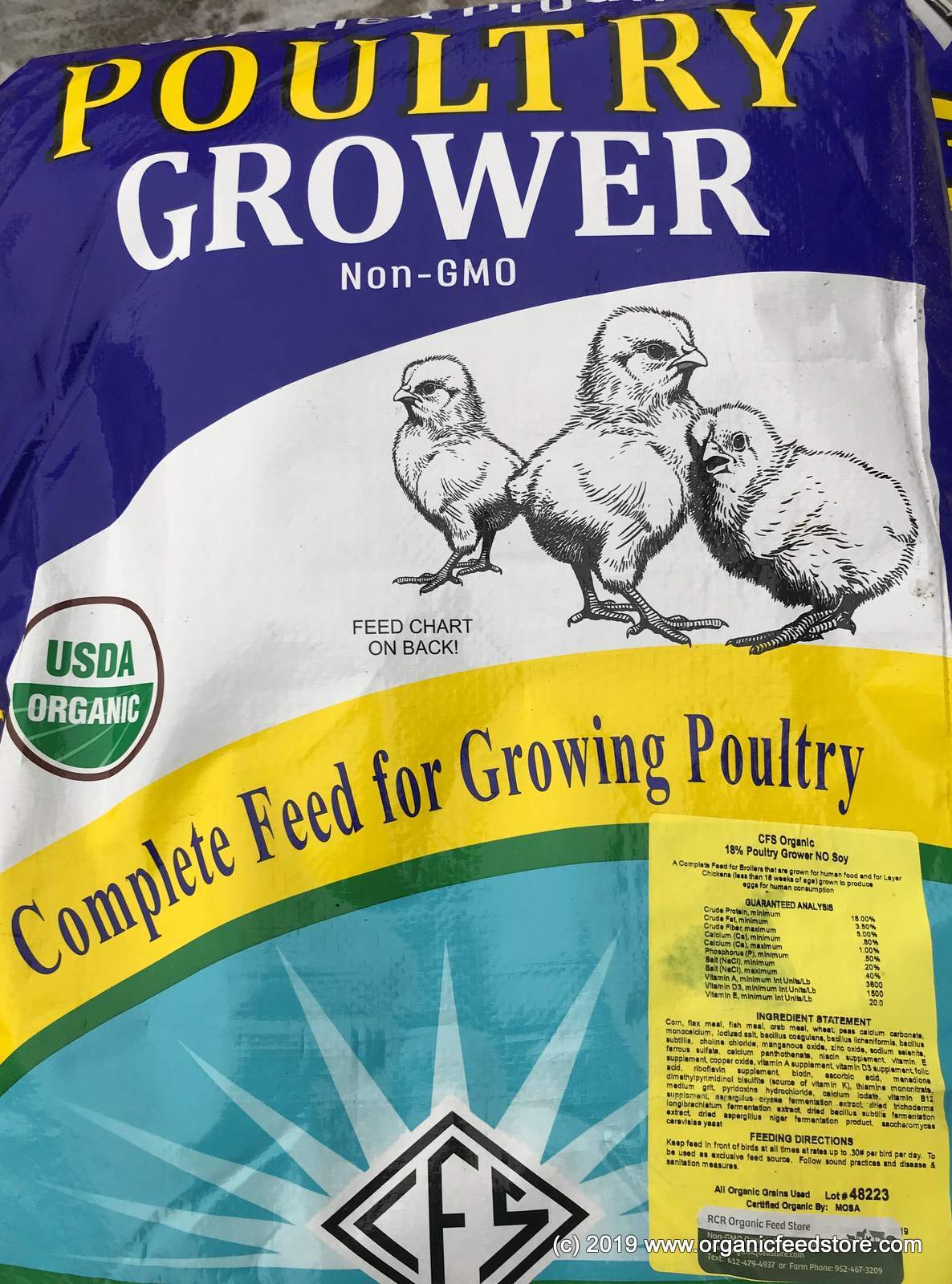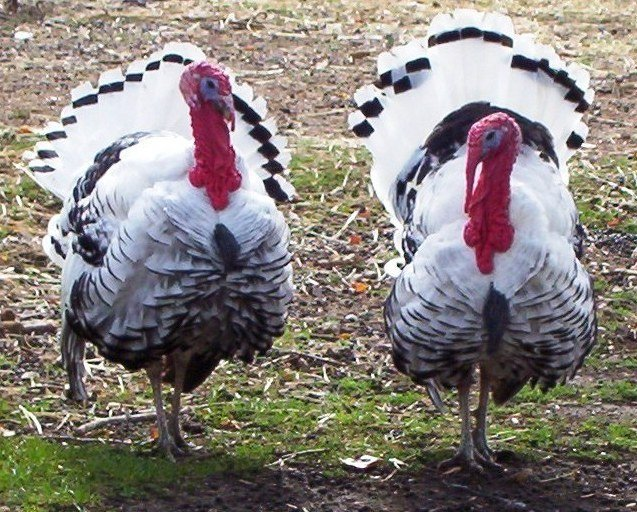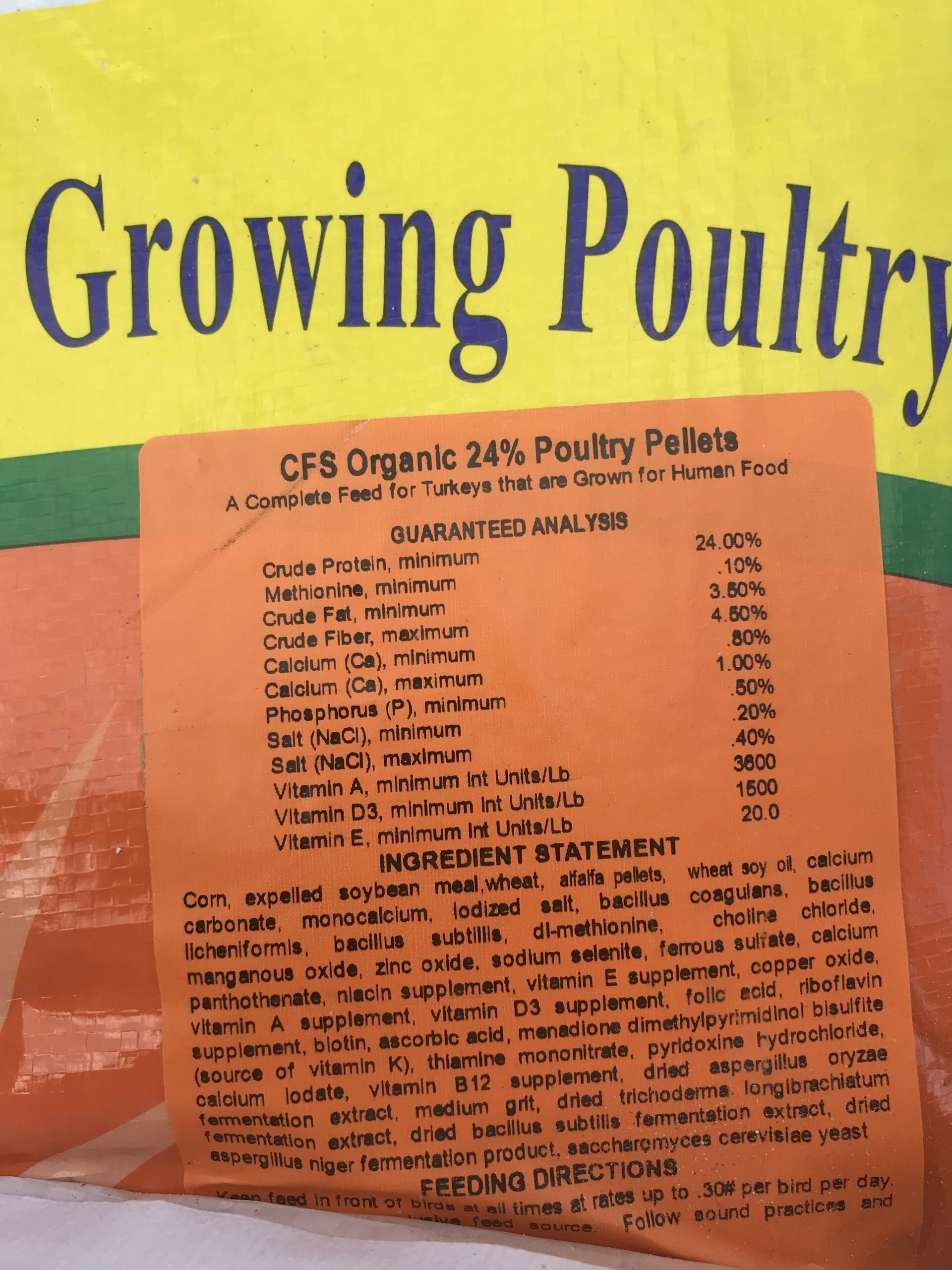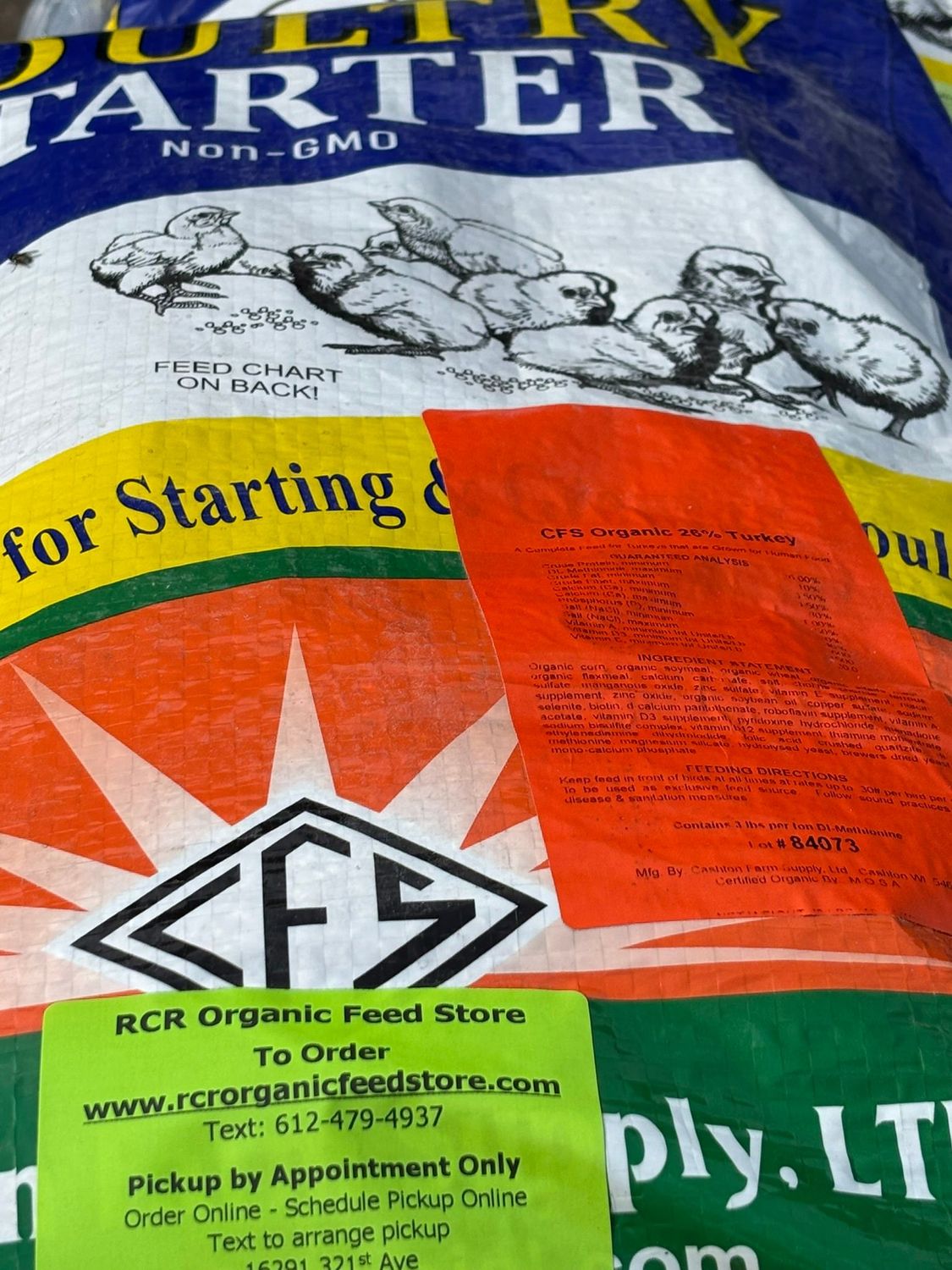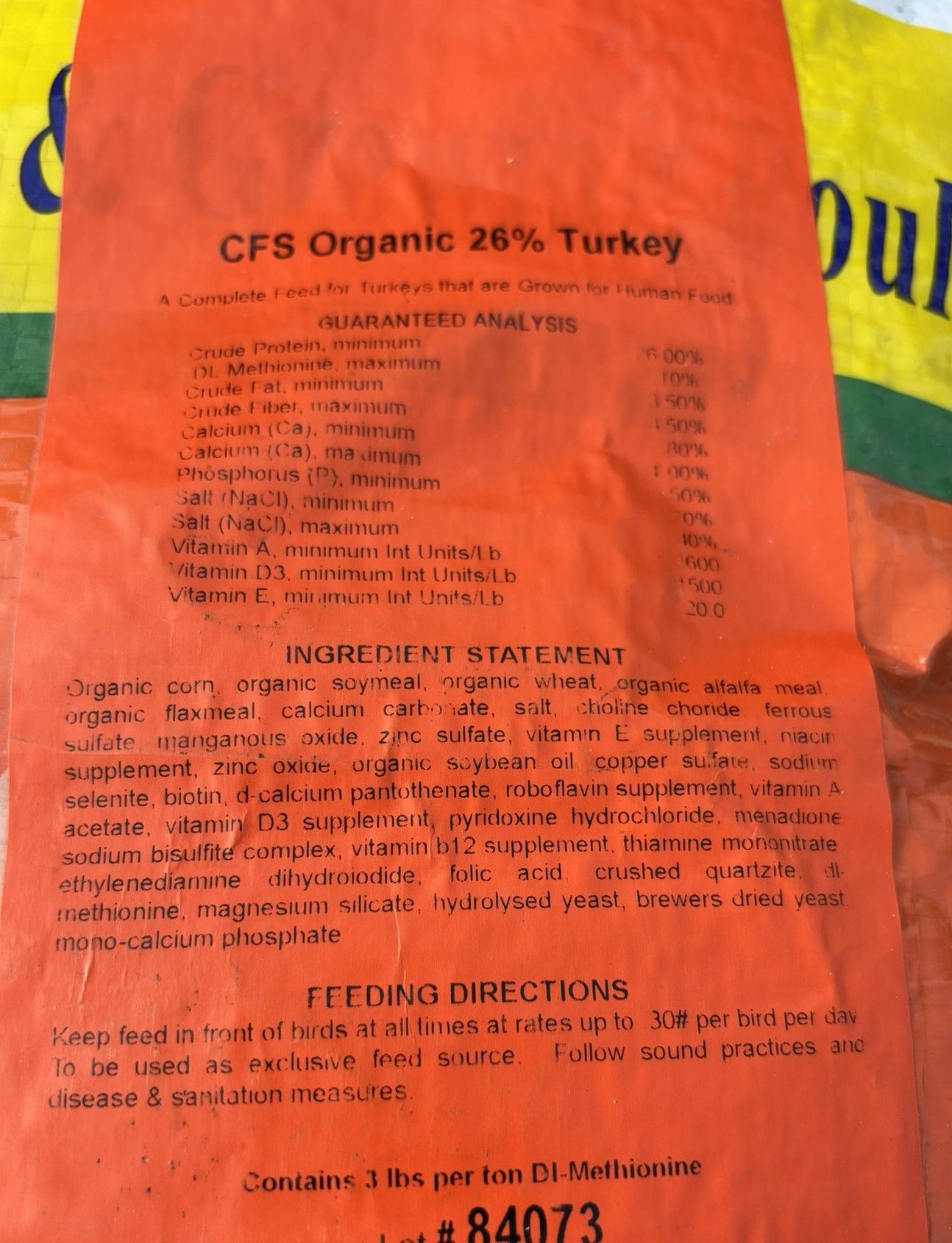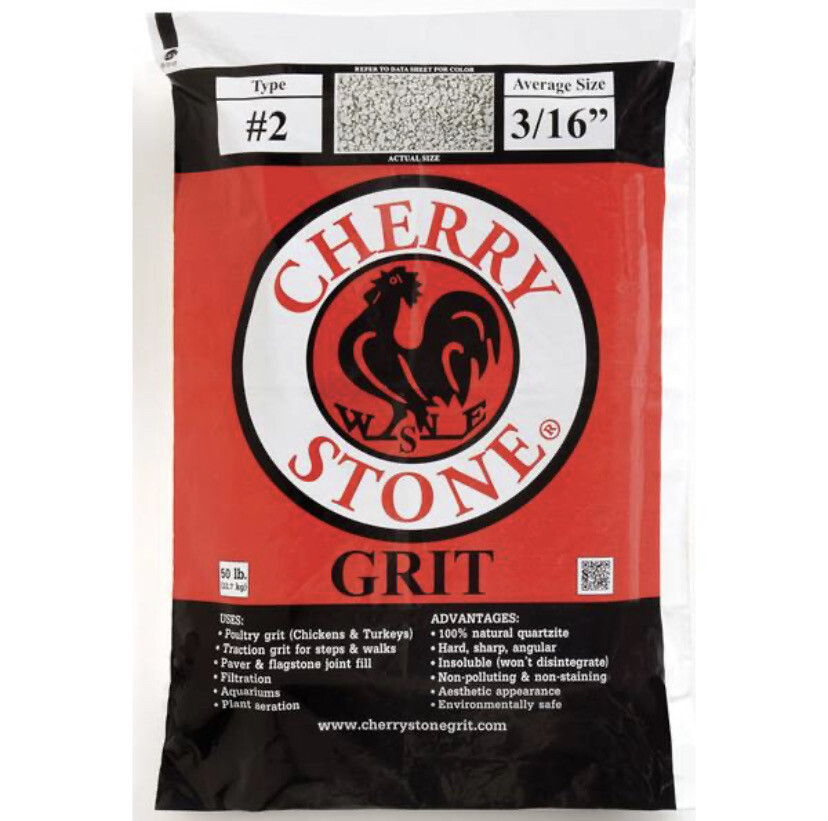CHICK CARE FROM ARRIVAL TO MATURITY
Before your chicks arrive, there are several things to do before their arrival. First, you need to acquire a brooder. This needs to have solid sides for two reasons: first, to prevent drafts and second, to keep your chicks contained. If you are using a brooder that you have used before, be sure to scrub it down with a 10% bleach solution and do this so it has time to dry out before you put new chicks in it. Next think about the amount of space that will be required as they grow. Your Cornish Cross meat birds will experience a growth spurt in about a week or so. If you do not have adequate space to accommodate this, you will have smaller birds.
Now that the brooder has been acquired of you should obtain a good quality feed to give them a nutritional start to their life. We start ours on a certified organic 20% chick starter. This is a good start for a layer flock as well as a meat bird flock. For your layers we recommend keeping them on a 20% ration for at least 6 weeks. For your Cornish Cross broilers, we recommend 2 weeks and for your Red Ranger Meat birds we recommend 6 weeks. After the appropriate time period you will move them to a 18% ration. Make sure your feed is stored in a cool dry place. You can find weekly feed requirements in the learning section at www.rcrorganicfeedstore.com.

